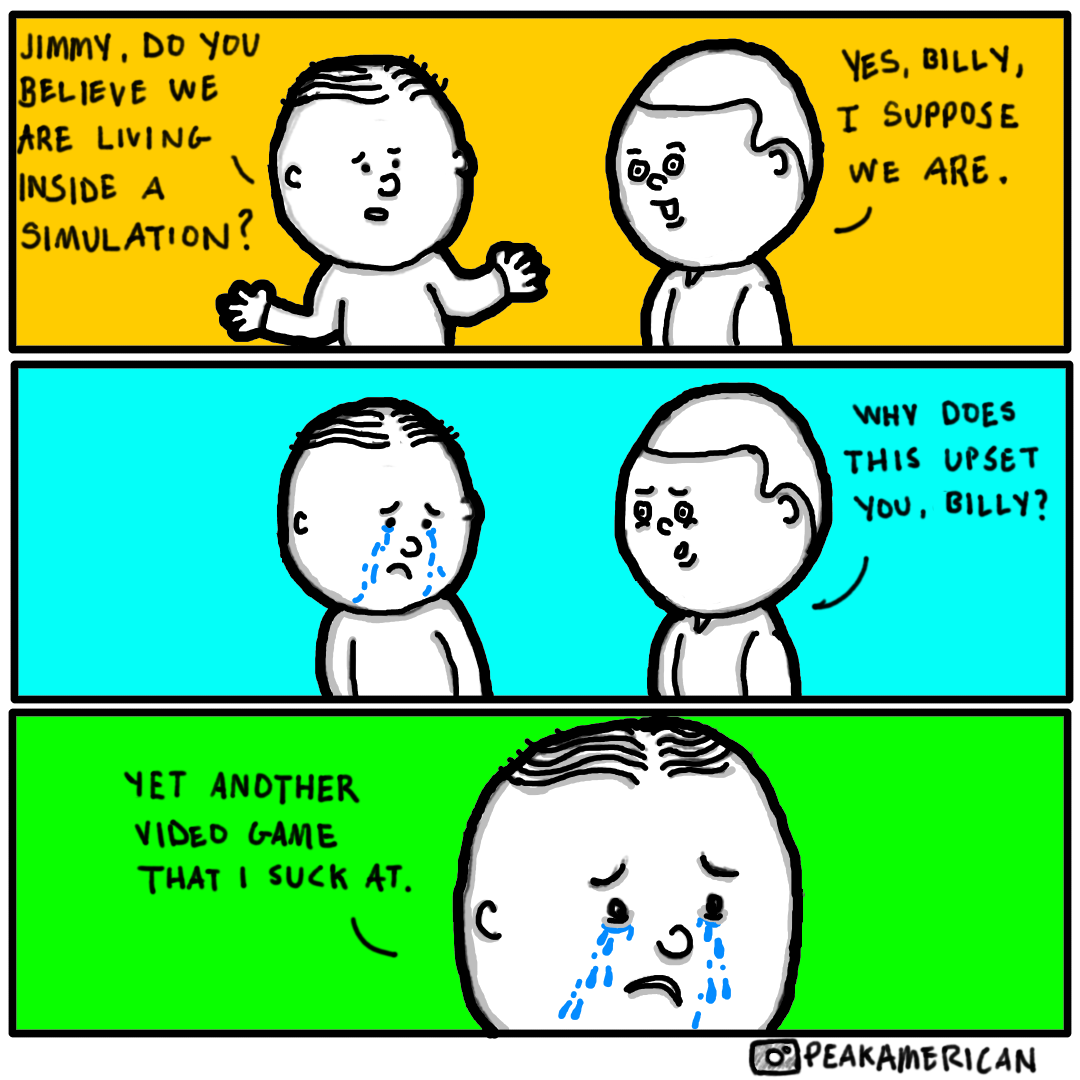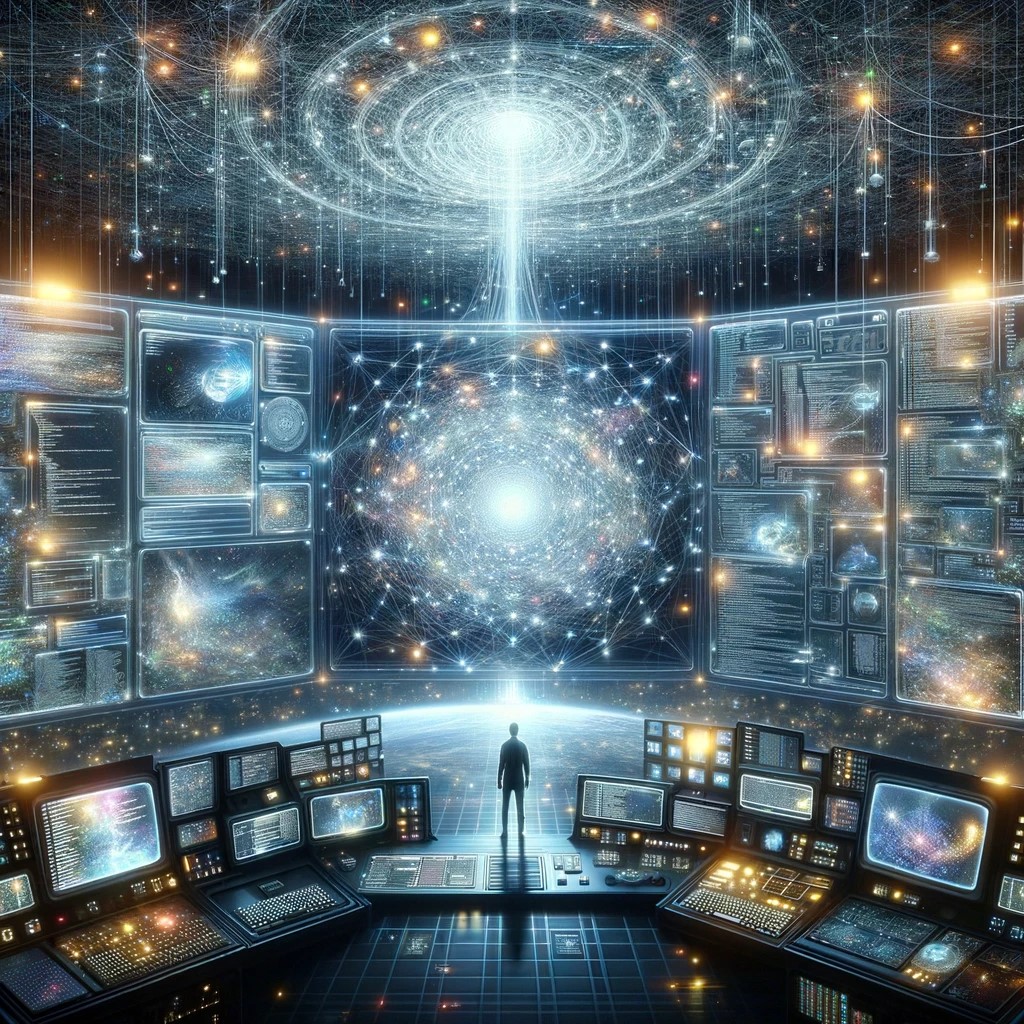The concept that our reality might be nothing more than an elaborate simulation has transitioned from the realm of science fiction to a topic of serious scientific debate. This provocative idea, known as the Simulation Hypothesis, suggests that everything we perceive as reality could be an artificial simulation, akin to a highly advanced computer program. Here, we explore the evidence and arguments that fuel this fascinating hypothesis.
Theoretical Foundations
The Simulation Hypothesis gained substantial attention after philosopher Nick Bostrom published a paper in 2003 titled “Are You Living in a Computer Simulation?” Bostrom argued that at least one of the following propositions is likely true:
- Almost all civilizations at our level of technological development go extinct before becoming capable of creating reality-simulating technology.
- If such technology is achievable, civilizations would likely have little interest in creating simulations of their evolutionary history or similar scenarios.
- We are almost certainly living in a computer simulation.
Bostrom’s argument hinges on the assumption that future civilizations might possess the computational power and technological prowess to run countless simulations of their ancestors.
Technological Trajectory
The exponential growth of computing power, described by Moore’s Law, illustrates a trend where computational capabilities double approximately every two years. Extrapolating this growth into the future suggests that simulating an entire universe down to the quantum level could one day become feasible. This technological trajectory forms a foundational pillar for the Simulation Hypothesis, suggesting that if it’s possible, it’s likely already been done.
Quantum Indeterminacy and Digital Physics
Quantum mechanics, with its inherent indeterminacy and the observer effect, where particles exist in a state of probability until measured, resembles computational processes that conserve resources by rendering only observed phenomena. This has led some to argue that such features of our universe hint at underlying algorithms, indicative of a simulated reality.
Moreover, the field of digital physics proposes that the universe operates on computational and informational principles, further blurring the lines between physical reality and computational simulation. The discovery of error-correcting codes in the equations that describe quantum mechanics has been pointed to as potential evidence of a designed underlying structure, akin to the codes used to correct errors in computer transmissions.
Philosophical and Existential Considerations
The Simulation Hypothesis raises profound philosophical questions about the nature of reality and our place within it. If our perceptions and sensations are indistinguishable from those we would experience in a “base reality,” the hypothesis argues that our world functions as real to us, regardless of its true nature.
Counterarguments and Skepticism
Critics of the Simulation Hypothesis point to the lack of direct empirical evidence and the immense energy and computational resources that simulating an entire universe would require. They also question the motivations of a hypothetical advanced civilization in creating such simulations. Furthermore, the hypothesis currently lacks a falsifiable premise, making it difficult to test scientifically.
Conclusion
While the Simulation Hypothesis presents a captivating narrative that challenges our understanding of reality, it remains a speculative theory. The evidence cited in support of the hypothesis is largely interpretative and philosophical rather than empirical. As our computational and scientific capabilities advance, we may inch closer to either validating or debunking this intriguing hypothesis. Until then, the notion that we might be living in a simulated reality continues to spark imagination, debate, and inquiry into the very nature of our existence.
How should you embrace it? The illustration below I think sums it up fairly well. Realize that you suck at it and go watch more Netflix.





